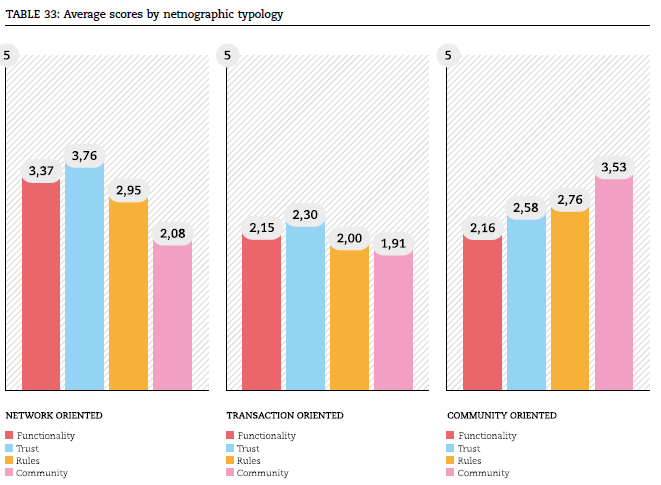
New European Study Examines Impact of Collaborative Economy
cross-posted from Shareable
 Four European Union consumers associations – OCU (Spain), Altroconsumo (Italy), DECO-Proteste (Portugal) and Test-Achats/Test Aankoop (Belgium) - in collaboration with Cibersomosaguas Research Group (Universidad Complutense of Madrid) and Ouishare Spain, came together to undertake a pioneering research project on the collaborative consumption phenomenon from the point of view of its effect on consumers and society.
Four European Union consumers associations – OCU (Spain), Altroconsumo (Italy), DECO-Proteste (Portugal) and Test-Achats/Test Aankoop (Belgium) - in collaboration with Cibersomosaguas Research Group (Universidad Complutense of Madrid) and Ouishare Spain, came together to undertake a pioneering research project on the collaborative consumption phenomenon from the point of view of its effect on consumers and society.
The research report entitled, "Collaboration or Business," includes a series of questions that the consumers associations thought were important to resolve:
- Do peer-to-peer (P2P) collaborative consumption (CC) platforms add value for individual consumers?
- Are CC platforms a safe environment for users?
- Do P2P CC platforms produce the beneficial impacts that some claim they do at economic, social and environmental levels?
- Are they creating value for society as a whole?
- Does the CC phenomenon represent a paradigm change or is it just a different way of doing the same business?
The research included 33 CC experts, over 8,600 consumers (users and non-users), and a sample of 70 websites of 55 different platforms across the four participating countries.
Key findings of the research
Collaborative consumption has high levels of awareness and involvement amongst those citizens that responded to the survey. Individual users are clear that CC platforms add value; this is reflected in high satisfaction levels and users’ reasons for participating.
Additionally, some legal issues need improvement and clarification, particularly as the observational study of the legal dimensions of the platforms found different levels of compliance with the appropriate regulations. For instance, users should receive better information about the identity of the platform (fiscal data) and platforms should clearly distinguish between private and professional providers, as different legislation applies.
The platforms’ survey provided important information about the structure, governance, and environmental awareness of the responding platforms. According to the data from the study, it is clear that CC platforms are efficient but their governance models are still far from being collaborative. While some of the platforms are aware of environmental issues related to their operation, they provide no evidence about how their activities actually benefit the environment.
A platform’s orientation is not just a question of what they do but also of how they do it. The balance between business and collaboration varies greatly from one platform to another, even within the same sector. The social netnographic study determined that there are three typologies of platforms:
- Network oriented
- Transaction oriented
- Community oriented
All of them provide value to users, but only about a quarter (26%) of platforms are focused on communities and have strong social and environmental missions.
For more and better collaboration
The study finishes (page 65 onwards) with a set of 10 recommendations for Collaborative Consumption platforms and 10 requests to Policy makers and administrations. We highlight here the latter.
Demands to policy makers and public administration:
It is important to remember that on-line P2P Collaborative Consumption involves relationships at different levels: between platforms and users, and also between users themselves.
Adding to the complexity of the relationships, there is also an abundance of legislation that applies to this area: e-commerce requirements, consumer protection laws, civil codes, tax regulations, etc.
The research showed that CC activities are already being conducted in a relatively safe environment. In this sense, CC doesn't require extra bureaucracy and unnecessary regulations, but it would be very beneficial if legislators and policy makers developed a few clear principles:
1. Authorities should ensure market unity across different regions and countries by introducing a common European level framework to protect users, where activities are provided across borders, such as transportation and accommodation.
2. They should also undertake market surveillance and promote a competitive environment to avoid the creation of oligopolies and monopolies in collaborative consumption.
3. It is necessary to clarify platforms' roles and responsibilities: users deserve to have clear legislation that specifies responsibility when conflicts or problems occur.
4. Legislators should define the parameters that distinguish a private and a professional activity. Ideally, such a consensus should work at European level.
5. P2P CC shouldn't be over-regulated; P2P relationships would benefit from being deregulated and simplified. On the other hand, in B2C relationships, the existing consumer regulations should be reinforced at institutional level and be respected by professional CC providers.
6. Legislators should acknowledge "the prosumer" as a new type of economic actor. They should define simple rules delimiting tax and administrative obligations for citizens that offer a non-professional service on an occasional basis. There is no reason to forbid such activities or to classify all providers as professionals with all the related obligations. Bureaucracy for non-professionals engaged in collaborative consumption should be simplified as much as possible.
7. Proper tax compliance is essential to counteract unfair competition and for its positive contribution to society. In particular, as prosumers continue to generate micro-incomes from the services they provide in CC (i.e. microtasks, social eating, P2P tourism) and as stable jobs are increasingly scarce, tax on CC activities should be 'fair'. In this sense, we suggest that taxes and social contributions should be calculated on an individual basis, according to the real income earned by the prosumer.
8. Governments should monitor and assess the triple impact (economic, social and environmental) of CC in the whole economy, with comprehensive indicators like those developed during this research, and look to prevent rebound effects (e.g. creating cheap hyper-consumption when the stated intention is to reduce it).
9. Legislators should guarantee the right to technological innovation even if innovation challenges the traditional way of doing business, as new technologies can improve efficiency in favour of consumers. Current legislation should be reviewed to accommodate improvements made possible through technology.
10. And finally, Governments should enforce compliance with the legal obligations that apply to all CC participants.
Get the full study here
Originally published under a CC BY 3.0 license
Go to the GEO front page







Add new comment